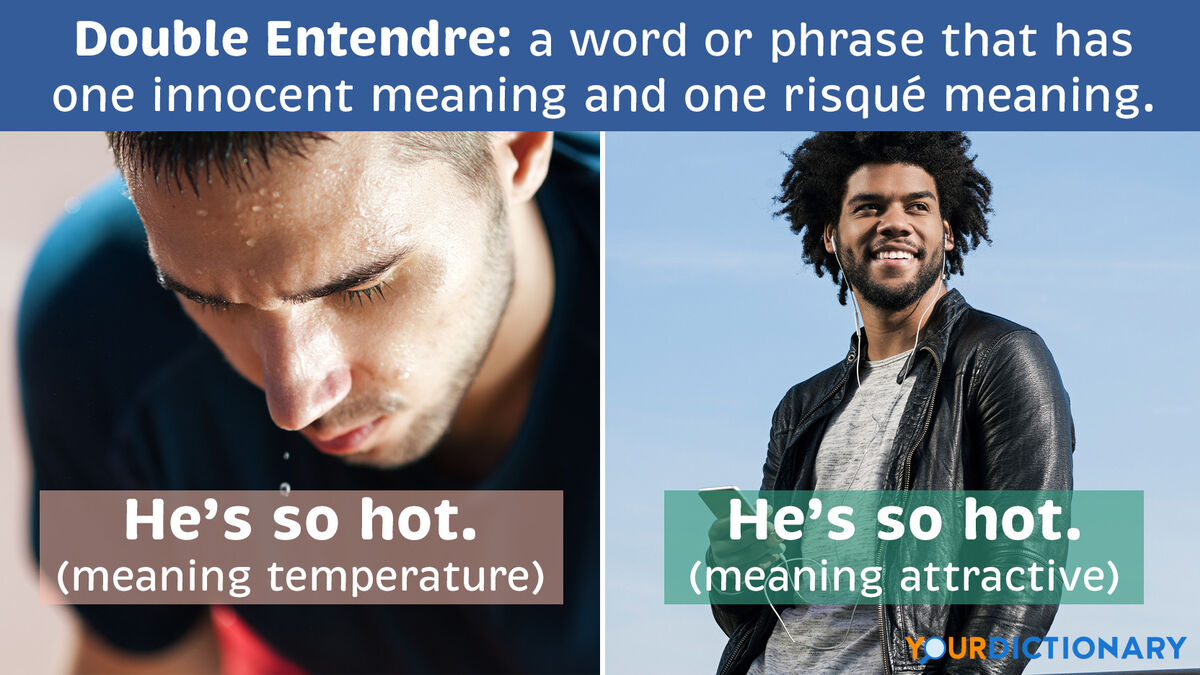Playing with words can be fun and clever. Double meanings add an extra twist.
Wordplay is an art that brings joy and laughter. It involves using words with double meanings to create humor and surprise. Imagine a joke where a word means one thing but also hints at another. This playful language game keeps conversations lively and engaging.
It’s like a puzzle for your brain. Exploring double meanings can sharpen your wit and make interactions more enjoyable. Whether in puns, jokes, or everyday chatter, a play on words adds spice to our conversations. Ready to dive into this world of fun and wit? Let’s explore how double meanings can make our language more playful and exciting.
Introduction To Double Meanings
Double meanings make words more fun. They can be tricky and clever. One word can have two meanings. This is called ambiguity. It adds humor and surprise. A word like “bark” can mean a dog’s sound or a tree’s cover. This makes the listener think and laugh.
Wordplay brings joy to conversations. It creates a playful atmosphere. Puns are a great example. They make people smile. Imagine saying, “I’m reading a book on anti-gravity. It’s impossible to put down.” This joke uses double meaning. Such wordplay connects people. It sparks creativity and wit.
Puns: The Quintessential Double Meanings
Puns are jokes with double meanings. They make us laugh. For example, “I’m reading a book on anti-gravity. It’s impossible to put down.” This joke uses the double meaning of “put down.” Another example is, “Why don’t skeletons fight each other? They don’t have the guts.” Here, “guts” has two meanings. Puns are clever and fun.
Modern puns are trendy. They use new words. For instance, “I told my computer I needed a break, and now it won’t stop sending me Kit-Kats.” This joke mixes tech and candy. Another example is, “I would tell you a chemistry joke, but I know I wouldn’t get a reaction.” This pun uses science words. Modern puns keep humor fresh.
Homophones And Homographs
Homophones are words that sound the same but have different meanings. They may also have different spellings. For example, “to,” “two,” and “too” all sound the same. But they mean different things. This can make sentences fun to read. It can also make them tricky to understand.
Homographs are words that are spelled the same but have different meanings. They can also have different pronunciations. For instance, “lead” can mean to guide someone. But “lead” can also be a type of metal. These words make reading interesting. They also add a layer of fun and challenge.
Idioms With Double Meanings
Idioms are fun. They often have double meanings. For example, “break the ice” means to start a conversation. It does not mean to actually break ice. Another is “spill the beans.” It means to reveal a secret. It does not mean to spill real beans.
Some idioms can surprise you. “Bite the bullet” means to do something hard. It does not mean to bite a real bullet. “Kick the bucket” means to die. It does not mean to kick an actual bucket. These phrases make language rich and interesting.
Double Entendres In Humor
Double entendres have been used for centuries. Shakespeare often used them in his plays. Romeo and Juliet is full of them. One example is the line “Ask for me tomorrow and you shall find me a grave man.” Here, “grave” has two meanings: serious and dead. These clever uses of language made his plays more interesting.
Today, comedians and writers still use double entendres. They add fun and wit to their work. Shows like The Simpsons are known for this. Bart Simpson’s prank calls are a good example. When Bart asks for a “Mr. I.P. Freely,” the double meaning creates humor. This type of joke keeps the audience engaged and laughing.

Credit: www.redbubble.com
Poetry And Double Meanings
Poetry often uses double meanings to create fun and playful effects. This technique makes readers think deeper and enjoy the hidden messages. Clever wordplay adds layers of meaning, making the experience more engaging.
Famous Poets
Many poets use double meanings. William Shakespeare loved using puns. Emily Dickinson often used clever wordplay. Robert Frost enjoyed hidden meanings. These poets made their poems fun. Their words had layers of meaning. Readers often find new meanings in their work.
Creating Your Own
Start with simple words. Think of words with more than one meaning. Write a short poem. Use these words in your lines. Play with their meanings. Make your readers think. Let them enjoy the surprise. Poetry becomes fun this way. It makes your writing unique. Try it today!
Advertising And Double Meanings
Some ads use words with double meanings to be fun and smart. These ads catch our eye. They make us think. For example, a coffee shop might say, “Get a shot of espresso.” Here, “shot” means a small drink and also a chance. Clever, right?
Another example is a car ad that says, “Drive the future.” It makes you think the car is modern. But it also means you control your future. Such ads stick in our minds. They make us smile.
Using double meanings in ads is an art. It needs creativity. It needs careful word choice. The goal is to be clear and clever. Ads should not confuse people. They should make them think and laugh.
Short, smart phrases work best. They are easy to remember. People like to share them. This helps the ad reach more people. So, have fun with words. Make your ads stand out.
Double Meanings In Literature
Classic literature often uses double meanings. Shakespeare is a great example. His plays are full of puns and wordplay. For instance, in “Romeo and Juliet,” the word “grave” is used in two ways. Juliet says she will lie in her grave if Romeo is married. Here, “grave” means both a serious situation and a burial place. This adds depth and humor to the text.
Modern books also use double meanings. They make stories more engaging. For example, in J.K. Rowling’s “Harry Potter,” the word “spell” has two meanings. It can mean a period of time or a magical incantation. This clever use of language enriches the story. It makes readers think and smile. Authors love to play with words. It keeps the reader hooked.
Cultural Variations
Western cultures love wordplay. Puns are common in jokes and TV shows. Words often have a double meaning. It makes conversations fun and interesting. People enjoy figuring out the hidden meanings. In English, puns are very popular. They make people laugh. Kids and adults both enjoy word games.
Eastern cultures also use wordplay. In Japan, puns are called “oyaji gyagu”. They are very popular in manga and anime. Chinese language has many homophones. This makes it easy to create puns. Wordplay can be found in poetry and literature. It is a fun way to use language. Enjoyment of word games is universal.

Credit: www.yourdictionary.com
Practical Applications
Double meanings can make conversations more interesting. They help in making jokes. People enjoy wordplay. It makes them laugh. This can make talks more engaging. It also helps in breaking the ice with new friends. Using double meanings can show you are clever. It makes you a fun person to be around.
Playing with words makes you think differently. It can help in solving problems. It also helps in creating new ideas. Writers often use double meanings in their stories. It makes their work more interesting. This can keep readers hooked. Artists use wordplay in their art. It adds another layer of meaning.

Credit: www.pinterest.com
Frequently Asked Questions
What Is A Double Meaning In Words?
A double meaning occurs when a word or phrase has two interpretations. It can create humor or ambiguity in language.
How Can Double Meanings Be Used For Fun?
Double meanings can be used in jokes, puns, and wordplay. They add humor and wit to conversations.
Can Double Meanings Improve Language Skills?
Yes, understanding double meanings can enhance vocabulary, comprehension, and critical thinking. It also makes language learning more engaging.
Are Puns An Example Of Double Meanings?
Yes, puns are jokes that exploit different meanings of a word. They are a playful use of language.
Conclusion
Playing with double meanings can add fun to our daily conversations. It brings humor and creativity to language. These playful words challenge our minds and keep us entertained. They also make communication more engaging. Anyone can enjoy this wordplay, regardless of their English level.
Start using double meanings in your chats today. You might discover a new way to enjoy language. Keep the fun alive in your words!


Comments